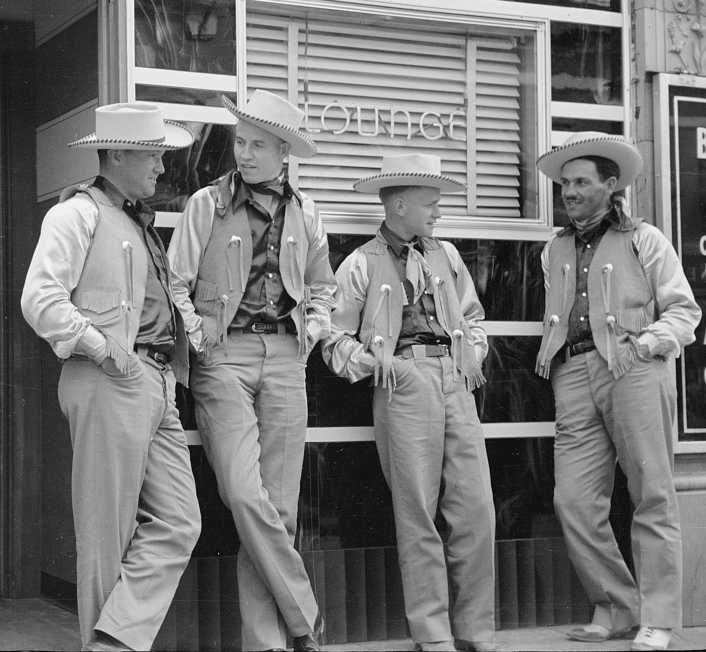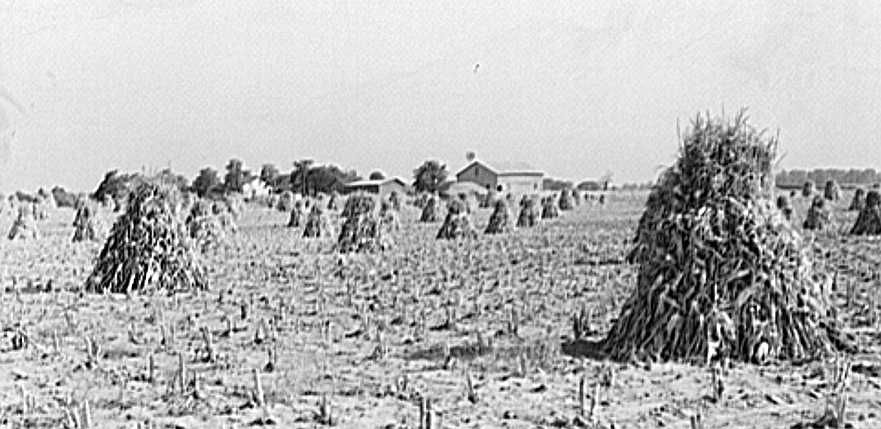
FLORIDA
Harry Tendler
In Spring 1933, while hitching from Florida I thumbed a ride out of Savannah, GA. The driver of the car turned out to be a detective who arrested me for vagrancy. In those days in Georgia one had to have a few dollars on their person if on the road, and I had 62 cents.
I was driven to a courthouse in Savannah where about a dozen men were detained. I was asked by one of them if I was Jewish. When I told him I was he advised me to call the Rabbi, who would help me out of my predicament. The court attendant kindly gave me the Rabbi's phone number. I called and in about an hour, the Rabbi along with another man escorted me out of the courtroom.
I was driven to a most pleasant home. I then learned that the Jewish communities throughout the entire country maintained homes, operated by retired sextons and their wives who provided food and lodging for a few days for all Jews who were on the road. The houses were called Nachts, which is Yiddish for nite.
I stayed two nights. Called the Rabbi to thank him. He gave me a railroad ticket to New York and five dollars. I boarded the train in Savannah, got off in Florence, S.C. turned in the ticket for cash and headed home to New York.
I wasn’t going to spend all that money on fare. All I needed to do was get out of Georgia, where vagrants served 30 days on the chain gang.
FLORIDA
Harry Walker
Many nights we would sleep in cornfields where the corn would be stacked up in pyramid-like piles. They were vary warm inside and with newspapers for a mat and newspapers for a blanket, we managed to keep warm. This method was only available in the fall of the year after the corn was cut.I was with a group of men, women and children in and on a freight train headed west through Kansas.
Gossip had it that under such circumstances you should not leave a train in Fort Riley, Kansas. That it was miserably hot, no shade and the railroad detectives were less than cordial.
A group of us young men decided that we would not and could not leave the train at Ft. Riley. We went forward to a gondola car loaded with ballast, (rock that is used to stabilize the road bed) and filled our pockets with rock. We then spread over the top of the freight cars with our hands in our pockets.
We had no plan, no leader, and no intention of violence, hoping to God that nothing would happen. We had simply decided that we could not get off the train at Ft. Riley.
The train stopped and detectives came down on either side demanding that everyone get off the train. No one moved or made a noise. After considerable time, the confrontation was ended as the train whistle blew and we moved on to the West.
I have often wondered what would have occurred had the detectives tried to remove us forcibly. At the time people in our position did not feel we had the right of protest of any kind.
I recall that many times while pulling out of a river bottom or climbing a steep grade, the train would stop and the engineer would come back over the train and pick out two strong young men to go forward to the coal car and were given shovels to help the firemen stoke the steam engine by shoveling coal from the back of the coal car closer to the fire box door.
Since I was young and very strong at the time I was generally given this task. We were given thanks but nothing else. The engine under heavy strain in climbing the grade would erupt smoke and ashes like a volcano over everything behind, including we who were helping the fireman.
FLORIDA
Harvey Baker
My Mom, who was part Indian, was deserted with six kids, 13 years to 9 months. I was 10. She kept us together by her ability to use the soil, animals, vegetables, wild berries, corn, wheat, fruits, nuts. We dried apples, corn, green beans strung on a string. I worked for the WPA at 16. I used a 16# sledgehammer that brought blisters to my hands and little cuts over both shins. My brother sent me his boots to stop that.
FLORIDA
Havis Martin
19, 1931
Pistol whipped in Wellington, Kansas by the railroad bull. He held the gun on me and knocked me down and kicked me. In New Mexico I watched men thrown off boxcars and the train was going fast. I guess some of them were hurt. I was lucky he stopped three cars from me. I was riding on top of train.
I met one fellow in Winslow, AZ. He said I could stay with him but he tried to get me to sleep with him. I drew my knife and told him he should get married and ran out of the room.
I lived with my sister in Hollis, Oklahoma. Finished high school there. I have seen cotton planted one day and the wind and sand would blow it away the next. It was so bad cars had to turn on lights in the day. At times you couldn’t see sun.
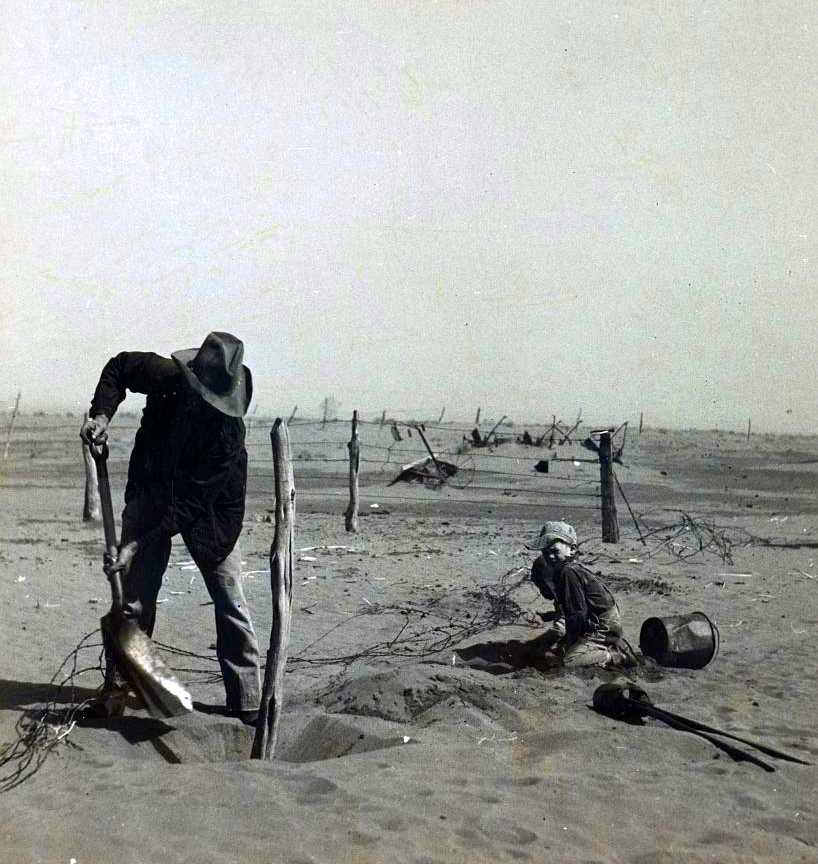
FLORIDA
Herbert Skip Ganger
Six months on Georgia chain gang. For vagrancy.
“Chain gang was now added to my vocabulary, along with other words such as pedophile, ball and chain, stripes, screws, wire city, water soup, hard tack, man on the hill, boss man, yessuh, make little ones out of big ones.
I also learned some poetry. Every morning rain or shine, the same screw recited the same chant.
Rise and shine you sons o b…., get yo a--- out and dig dem ditches.
It ain't near day break, but its half past two, I don’t want you, but the boss man do.
Needless to say, after they sprang us I had no hanker to go to Florida, so back home I went.
FLORIDA
J. Frank Brumbaugh
Just after Christmas 1936, not quite 14, I ran away from a Chicago orphanage.
I lived the hobo life style on the road and rails till mid-1940
I have rather fond memories of those times, actually. The freedom was wonderful, despite the occasional real hunger, and the poor results in looking for odd jobs, otherwise having to beg food from householders. I think the freedom, and the availability of railroad timetables in every depot showing the routes of each railroad to plan the next leg of my journey to nowhere was the best part of being homeless and always broke.
Born 1921. I was raised by an invalid mother and her parents, fanatic Roman Catholics. Mother died when I started first year of high school. When term ended grandparents put me in a Catholic orphanage and I attended a boys' only Catholic high school for one term.
I went “home” at Christmas and when it was time to return to the Catholic orphanage I hopped a freight for the first time. I have been an avowed agnostic ever since. They caught me once, sent me to (Catholic) boys' town. I left after one night. I wanted no part of any orphanages and I had more than a bellyful of Catholicism, only one of a great number of totally illogical religious philosophies.
I was able to get a good education, often spending hours a day in the Public Library in the non-fiction stacks, where I read widely – natural and social sciences, philosophy, comparative religions, agriculture, hunting and fishing.
I met all kinds of people on innumerable kinds of circumstances. Mainly it allowed me to get a liberal arts education, partly by my studies in Public Libraries all over the country, without putting up with the petty annoyances attendant to public schools and their curricula, much of which I felt was a waste of time and taught me little of actual value in life. I was fortunate to be born with a high IQ at the 99.3 percentile, according to Mensa, of which I was a member for about 13 years from 1973.
But among the many things I learned was to value leisure well above money, and to recognize the difference between needs and wants.
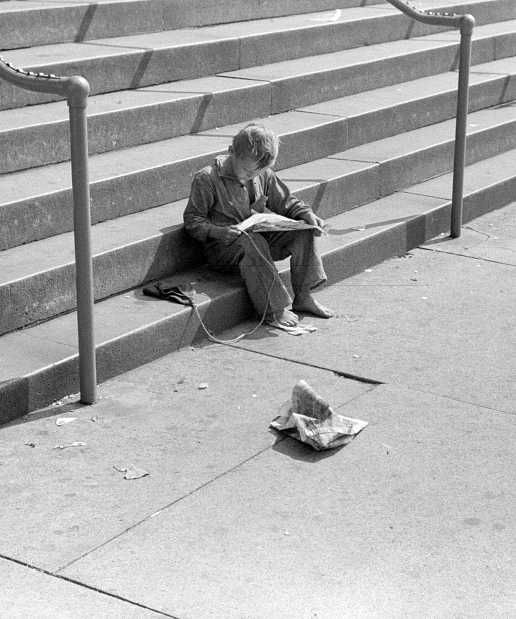
FLORIDA
James Hingley
1935, 21, out of work and homeless, from Washington D.C.
Caught train in Omaha, Nebraska yards…
We were soon on our way across Nebraska. The prairie wind was quite dehydrating and would soon chap your lips and burn your skin. It also dried the sheep dung in this sheep car and soon was blowing it around like a brown snow storm.
The next morning we found that we were about to enter the yards at Cheyenne, WYO. All smart hobos got off when the train slowed enough, say 25 mph, and walked over to the main highway, and thence walked through Cheyenne to the railroad right-of-way on the other side of town, where they could catch the outbound train. The reason for this was that that time there was a school for railroad detectives in Cheyenne and they would bring the class down to meet the train as it came in.
We left Ogden in the evening and, after crossing Great Salt Lake, we saw the moon rise on the salt desert. Searching around the boxcar I got a piece of newspaper, and upon taking it to the open door, discovered that moonlight reflected off the white salt enabled me to read the print.
FLORIDA
Jerry Brown
We lived in a very small town, Summerfield, Illinois.
My father died when I was 7. There was eight children left for my mother to feed. All of us pitched in. 5 girls and 3 boys. We sold papers and did work for the neighbors.
My buddy and I grabbed a train out of East St. Louis, Ill. The railroad dicks were shooting at us.
I remember the older men that was working beside me in the harvest fields. They were bleeding out their mouths and passing out. It was too hot for them.
FLORIDA
John MacGee
7 year old
lived in Pontiac, Illinois
Grandfather, father and uncle RR men, who told kids not to fear “tramps”
My grandfather, father and uncles were all railroad men and knew many of the bums by name as they passed through. They were all good for one handout of money for coffee or more. As I grew up, the railroad station and the tracks for several miles were my hiking trails. From my parents, I learned that I had nothing to fear from these bums as they were rather professional at not working or had been influential people at one time.
My special recount of those day was the trestle bridge where my friend and I spent many early afternoons. There, below the bridge by the Vermilion River, we chatted with the tramps and partook of the most delicious "rock soup" ever made over an open fire in a Hills Brothers coffee can. It was thick meaty and full of the vegetables I wouldn't eat at home at seven years old. I can still remember the wonderful taste.
Our entrance fee to obtain this tasty soup and listen to the bums tales of adventure was a sheaf of marijuana. They liked to dry and smoke it. Nowadays, this drug is widespread at a very steep price, but then it grew along the fence rows at the farms. We would go the field, gather the grass and offer it as admission for that wonderful soup and fascinating stories of riding the rails.
We would sit back resting against the trestle abutments. The fire would be at embers with the coffee can resting on a hot rock placed almost in the fire. The Vermilion River would flow gingerly by carrying the debris washed in and even though there were plentiful fish, I never saw a bum fish the river for dinner. The stories these men told were never dull. It as odd, but I can only remember ever seeing but one woman ever on the bum.
FLORIDA
John Merva
Born 1920
18 when left home
My Dad kicked me out for not going to church. I left home with a pocket watch and three cents in my pocket. I tried to join the army but there was no opening so I started hitchhiking and riding the rails looking for a job.
Lasting impression was the smell of pinewood fires, when trying to keep warm in the Rockies... and when hungry the smell of cotton oil processing plants in the southern states.
Riding on top of a box car with two big locomotives, pulling and pushing the freight train over the Rocky Mountains. I can still see and hear the puffing of those locomotives.
We never used our names, we just called each other by states we came from as Okie, Arky, Tex. We never gave addresses to each other or the name of home towns. Some hobos were wanted by the Law so they would not give their identity.
There were some rough necks who kept you away from their territory and there were some thieves who would rob you of any valuables you had. My pocket watch was stolen by two bastards and I was afraid to get tough with them for fear if they caught me riding on top of box car they would throw me off the freight train, so I let them get away with it.
It made a man out of me. It taught me to respect people who help other people. It taught me how to make money and how to keep it. It taught me to be alert for an opportunity and never pass an opportunity when it comes your way.
Our home was a regular stop-over for the "Knights of the Road" -- TRAMPS, HOBOS and VAGABUNDOS
FLORIDA
Manuel Chavez
Today a Lt. Col.
While I was not old enough to be a hobo, age 10 and 11 at the time, I was in a position to observe first hand, the movement of these poor souls on their way west in the Depression years, 1928 through 1932. Hopefully I can contribute a few lines that may be of interest in your research.
I was born and raised in the small town of Las Cruces, New Mexico (USA), which has been an important crossroads on the southern route to California. The Santa Fe railroad passes through town, linking Albuquerque and El Paso (del Norte) with the Southern Pacific Line.
Highway 70 and 80 meet at Las Cruces as a road net to Southern California. The old railroad station at Las Cruces is still in place and being preserved as a Historical Site.
The hobos were also often referred to as tramps and at Las Cruces, being a Spanish speaking community, you could often hear someone say, "aqui viene otro trampa". This was native Spanglish in it's best form.
Our home was a regular stop-over for the "Knights of the Road" because they always got a handout of a big plate of food. My Mother, Margarita Bombach Chavez, never turned anyone down. She was an exceptional cook. It was obvious that they enjoyed it, because they would leave with a smile on their faces and say thank you. There was often a big pot of pinto beans, some delicious chili from the famous Mesilla valley, and hot tortillas.
I now know why New Mexican food became so popular throughout the west. The Knights of the Road spread the word!
Sure enough, that is why so many of the Trampas came to our home which was only two blocks from the center of town. They spread the word that there was a person with a soft heart at that address.
One of the transients told my Mother that they had posted a code placed at a convenient spot at their hangouts, to identify addresses where they could get a meal and maybe some clothes or a place to wash off with a hose. There was a small table under the shade of a mulberry tree where they could enjoy their meal with at least a little dignity.
Of the hundreds of transients that stopped by our home, during a period of three or four years, I do not recall that anything was stolen from the yard nor was there ever any threat to our security. What a different world there is today. Sometimes my Mother would ask them to do a minor chore, chop a few sticks of wood for the stove or weed the garden, while they were waiting for the food to be warmed or prepared.
Women, especially young women, were rare visitors to our home.
My Mother had a younger brother who hopped a freight from Albuquerque to Las Cruces about 1916 or 1917. He slipped while trying to board the ladder and was killed. Maybe this is why she had a soft heart for these vagabundos.
At the same time during this Depression period Las Cruces served as the cross-roads for the Okies. The folks fleeing the dust bowl and the rural poverty. Now, that was sad, because this group included the whole family, often in a beat-up car stuffed full with their meager belongings and kids on top. The identifying feature was the mattress tied to the roof of the car. They would camp on the edge of town for a few days seeking hand outs and work to buy enough gas to moved on.
Many of these families settled in Las Cruces and were able to put their lives back together and succeed in farming or other endeavors. Some were return visitors after they found that California was really not the bed of roses they expected.
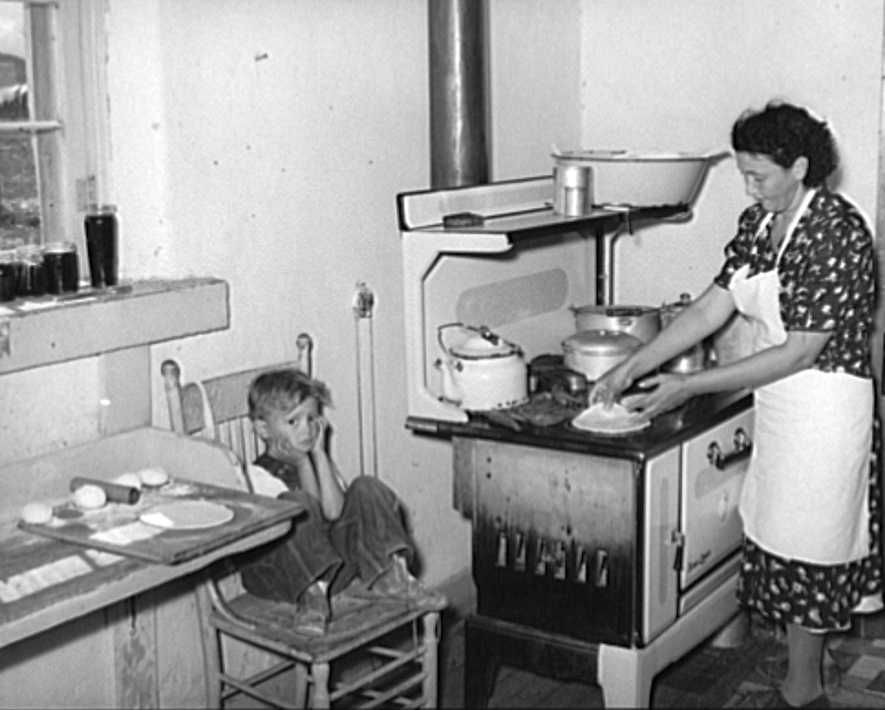
Michael Hyman
16-19
1932-1935
My mother died and my father remarried and told me to get out of house.
I was beaten by five railroad police in San Antonio, TX. They took turns and enjoyed themselves.
Most impressive sight: Riding on top of a boxcar from Oregon to Washington and freezing all night. Coming down from the mountain and getting warmer and warmer. At the bottom of the mountain seeing a boy with a fishing pole over his shoulder beside a stream and woods with wild flowers.
Hoover is my shepherd
I shall want
He maketh me to lie down on park benches.
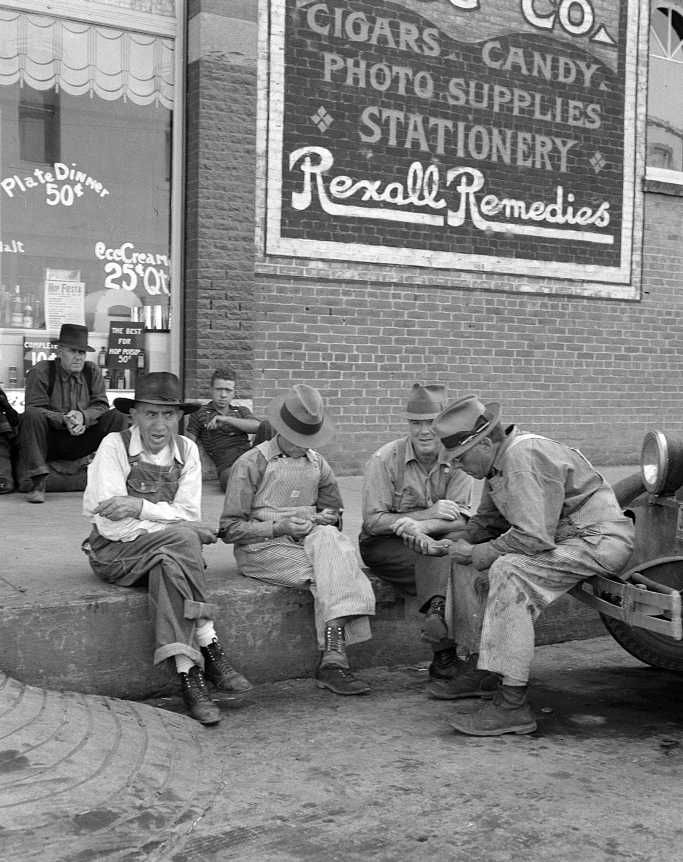
FLORIDA
Mike Glossecki
Age 20 1936+
The hardest work we did was pick potatoes in Oregon. Put sack between your legs with the sack hooked to a bar on your waist so that the sack was gaped open. Then could drag it with two hands to throw in the potatoes. We got 6c a hundred pounds. Try pulling 50 pounds between your legs bent over.
FLORIDA
Otto Oliger
I was 21 and my friend Ike was 20. We lived in a small town in Ohio. Ike had a brother in San Diego and I had a brother in Seattle. As we couldn’t find any work we decided to visit our brothers.
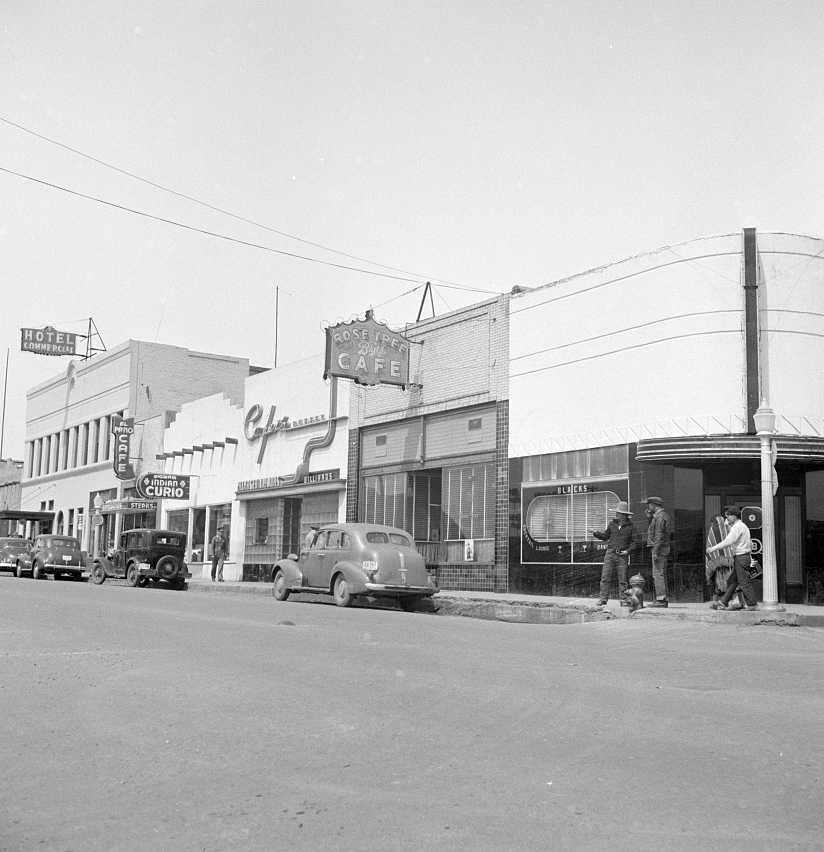
FLORIDA
Elmer Wieland
When we got to Flagstaff, we had to walk through part of the city. We passed an Ice Cream Parlor. The owner was standing out in front. He asked us if we had just gotten off the train.
He said to come into the store, I want to talk to you. He set us at a table, then asked when was the last time you wrote to your mother. We all said several weeks. He brought us each a couple sheets of paper a pen and a stamped envelope. When we finished the letters he gave each of us a Chocolate Ice Cream Sunday.
Kindness of Mexicans
Salt Lake City jail Kangaroo court: charged with breaking into jail and fined $2.00
“Very few of them would be in jail if they could find work.”
FLORIDA
Robert M. Hamilton
Sixty years ago the whistle of a steam locomotive was music to my ears and thousands of others. A train whistle meant adventure, excitement, danger. It meant strange sights and sounds.
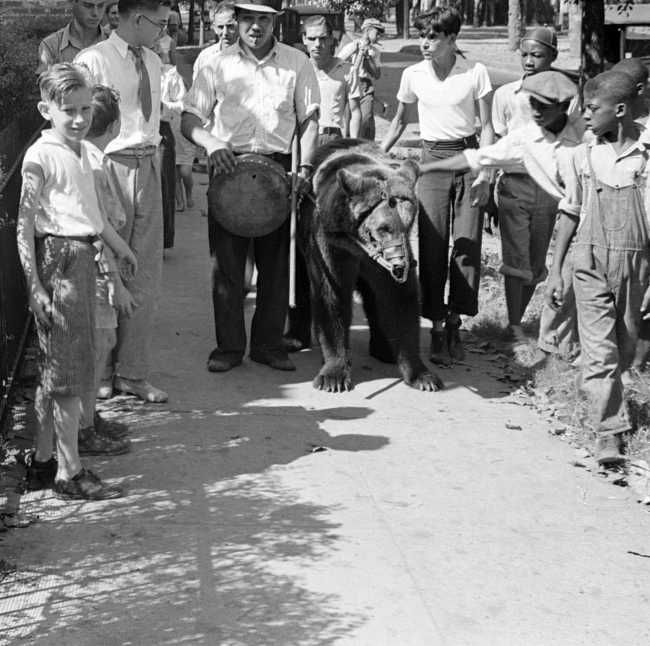
Sights like Mardi Gras in New Orleans with huge haystack-sized piles of ripe bananas cut from 90 pound green bunches being unloaded from ships by sweating black men working for 60 cents an hour toting the stalks from a conveyor belt deep in the hold. Hands on hips, burlap pinned over their heads and shoulders by a nail, they stepped on a counter then shrugged them off to waiting reefers and trucks.
Sights like the huge cathedral and the museum with its collection of wooden fire plugs and old armor.
Sights like the pine lands and cotton fields of Georgia with its red clay soil with swept yards surrounding a shack and a china berry tree. Laundry hanging on a barbed wire fence.
Sounds of the rails. Clickety-clack. Clickety-clack. Sounds of the engine breathing heavily as it took on coal or water. The release of brakes, the spinning of wheels and a great huffing and puffing as it gathered speed for its endless journeys.
Memories of those locomotives whose shining headlights gave away the numbers of their destination. South in the winter. North in the summers.
Memories learned early to always grab iron on the right hand side of a car so the momentum would swing one around so the left foot could land on the journal box to keep from being swept under the wheels
On top of the boxcar one would lie down on the catwalk. arms curled tightly beneath, with your grip or bundle in front of you for a windbreak.
If the car was a reefer or refrigerator car, the door had to be blocked from shutting as it would automatically lock. This was the ice compartment and an empty often had small chunks of ice to suck on and sometimes apples to be snared from under the slats.
Memories of a rosy-cheeked farm boy asking for work knowing the lady of the house would proffer a sandwich or piece of pie and sometimes a stamp to write home with but was more often traded for Bull Durham.
Memories of a hobo party where the main attraction was a keg of alcohol in which a convict’s head lay pickled.
Memories which go on and on, just like the tracks which go on and on and get narrower and narrower in the distance
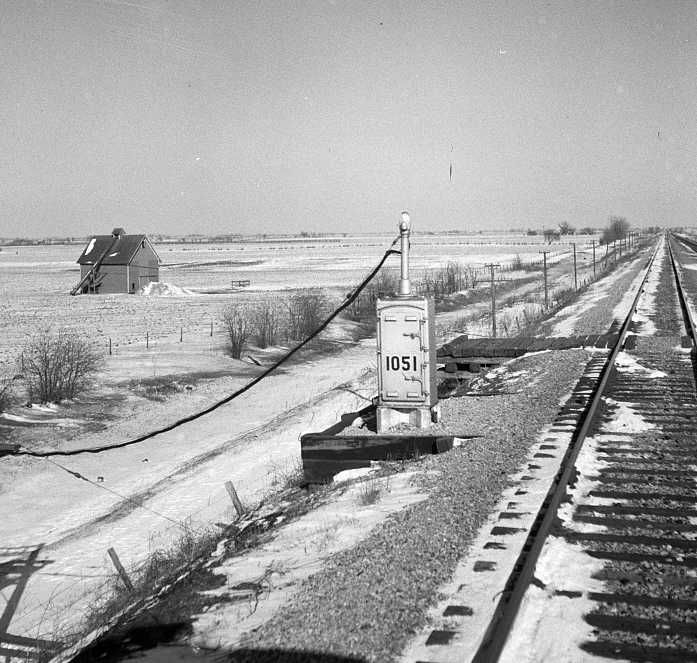
FLORIDA
Robert Howington
(1926)
1. WHAT LED YOU TO LEAVE HOME? FOR ADVENTURE? TO ALLEVIATE FINANCIAL BURDEN ON YOUR FAMILY? ANOTHER REASON?
Physically abusive father - I received switch or belting almost daily - sometimes for coughing at night and disturbing his sleep.
2. HOW DID YOU SURVIVE - GETTING FOOD SHELTER ETC.?
I knocked on doors. Most people were responsive - also restaurants. I had many dishwasher jobs. I slept in barns, sometimes with the owners O.K. My family are Protestants. I gained much respect for the Catholic Church; I always got cash with no sermon. I sometimes stayed in missions and had to work - chop wood or shovel snow and then attend preachings before being fed or bedded down. I worked worming or suckling tobacco or setting out tomato plants, hoeing corn etc. Usually $1.00 a day.
3. DESCRIBE SOME OF THE MEMORABLE PEOPLE YOU MET - GOOD AND BAD
At a water tank after hiking about 30 miles, I met a man, his wife, and 2 kids on the way to Connecticut. The kids were about 8 or 9 years old. He was on his way to Connecticut - No he didn't have a job there, but his cousin was a tenant farmer for a rich man. He had high hopes that he could move in with him and work for him for shelter and food for his family. I had a couple of dollars. I went back about a mile to a store I had passed. I bought coffee, 5 cents, eggs 10 cents, bacon 5 cents, cheese 8 cents, candy, 5 cents, and milk 10 cents. I took it back and we had a feast. They were such nice people. They had left Georgia a week before and had mostly walked. Rides were hard to come by. They were now considering "hoboing" to Connecticut.
At dusk, a train stopped, I said "GOOD-BYE" and hopped on. I hope they made it.
I was born 1911, Groundhog Day, February 2nd. My family lived in West Virginia. In 1924 at the age of 14, I started hoboing until, in 1926, I gave it up to be in the merchant marines. On my 16th birthday I was at sea.
Near the L & N Railroad yards in Ashland, Kentucky there was a hobo jungle. They had a big iron pot that was always cooking. I wondered if it ever got washed? Anyhow, you were welcome to eat if you contributed anything such as food or money. I visited and slept there twice. They let me help myself to the food without earning it, probably because of my age.
I rode the trains to no place in particular. Wherever it was going was okay by me. An open boxcar was an invitation to climb in. Once, in severe cold weather, I climbed down into the ice compartment of what was referred to as a "reefer" car - for refrigerators or ice. I spent the night and half of the next day in this thing, all the while scared of being locked in from above - but I kept warm. There was no ice inside, and no cargo either.
Once coming out of Cincinnati it was snowing big heavy flakes. I watched for an open boxcar door but found none, but a low gondola car approached. Its walls were about 4 feet high. I grabbed it and climbed over and inside. I was surprised that 27 men were sitting all around and leaning back against the sides. This included one black man who had no shoes. Instead, he had potato sacks tied around his feet. Someone asked him why. He said that when he left home with his buddy, he had new shoes and his buddy had worn out shoes. Then one morning (in his exact words:) my buddy beat me woken up.
I was on top of a boxcar with another boy about my age. It was a beautiful summer day, the train was speeding down through Tennessee. It's very difficult to ride in between boxcars. So after hanging on like this for an hour or so we decided it would be safe and comfortable on top. We were there only a few minutes when a brakeman was coming towards us waving a stick like a ball bat at us. My young friend was on one car nearest him and I was on the next.
The guy was shouting foul language and coming on strong, so my friend climbed down the ladder and was hanging on the very bottom. The brakeman also climbed down and was hitting the rungs of the ladder and my friend's fingers. He let go and took a terrible spill. Then he came at me and I had no choice but to get off. I went back to my buddy and he was a mess. Skid marks all over and a crooked arm that we both knew was broken. We washed up in a nearby stream and walked a couple of hours to a nearby village. There a nice lady took charge of him and I continued on.
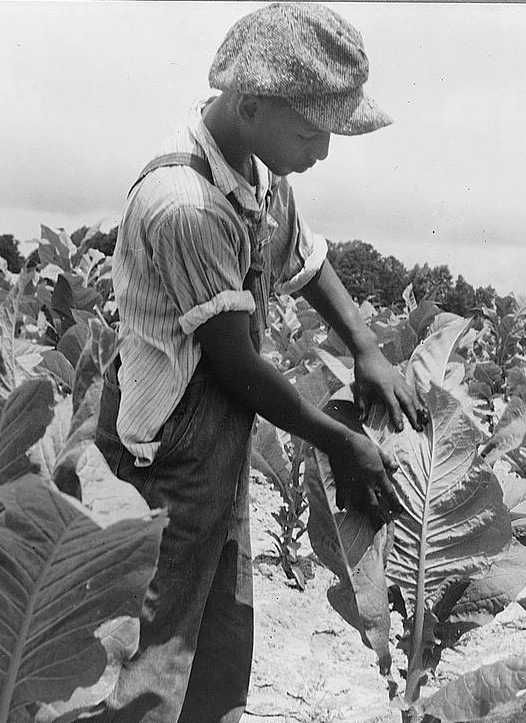
Work was sometimes available, such as one job I had. It was in Kentucky tobacco called Worm and Suckle. The damned worms were the size of hot dogs (no kidding). They must be pulled off by hand and stomped. The suckers, when snapped off gave off an ooze. The result was that after a few hours I had a buildup of gum-like goo on my hands a half inch thick and on my shoes it was an inch thick, but the pay was good, $1 per day.
Some jobs where the pay was good was picking apples in New York state: setting out tomato plants in Virginia (a real back breaker;) and whitewashing fences - these jobs paid $1 per day.
On New Year's Eve, January 1, 1926, I spent the night in a sand house Lexington Kentucky and heard the whistles blowing and bells ringing at midnight. The sand house is a large room with a pot bellied stove in the center. It has an upside down cone (the big wide end is at the top)around the stove which is filled or shoveled full of wet sand, this is called a "hopper." As the heat dries the sand, it slowly trickled out. This sand is then used in the engines for traction on the rails. In the drying process it leaves the whole area with warm or hot sand making a nice place for a cold hobo to spend the night.
One summer day in Roanoke, Virginia, I was very hungry. This was not unusual for me. I did have 5 cents and there was a farmer's market. In the late afternoon a man still had a wagon full of cantaloupes. I asked if I could buy one for a nickel and he said "I can have three for a nickel or I could have the whole wagon for a dollar." He had been here since daylight and sold none.
FLORIDA
Roy Sprague
Originally from Minot, ND
“I went through high school with one meal a day and wearing same shoes for four years, putting cardboard on the insides every morning.”
First time I rode the rails was to look for work. I was 16. Went 200 miles from Minot, SD. My family gave me 25 cents. I didn’t spend any of the money and gave it back when I returned.”
Held onto tank car through Rockies, two days and two nights, freezing
Humpy Davis, Drake, ND, infamous bull:
Many hoboes who rode the Soo Line RR through ND may have had contact with Humpy Davis. Stories resulting from these meetings were spread all over railroad lines. Warning travelers to avoid Drake, ND where Davis lived. He was a small man and seemed very short because he was bent over with a huge hump on his back. He always seemed to have an uncanny sense where to find bos.
The Soo line cut through my father’s homestead. We always knew when a freight train was coming in because a little black Ford coupe would come along the RR right of way and park. Often we watched Davis go along a string of freight cars, and we’d marvel how he knows when to stop and order “Get outta there you so and so ****** and start walking.”
If a hobo would come to our house or stop us on the road to ask for food or money suddenly Humpy would appear and tell the men to keep moving. His big guns and terrible language were always effective. Even large groups of men would leave and move on.
Often he would warn my father that men were hiding from him and ask permission to check farms and haystacks afraid cigarette ashes or butts might start fires in the dry hay. He always seemed to know when my family was out working in the field. He would come by and ask if I was OK and make me promise to phone if I saw strangers near the farm.
Humpy was hired to remove hoboes from the railroad but he always watched out for us and our home. He and Mrs. Davis were wonderful friends and we always felt safe -- never thinking it necessary to lock a door.
FLORIDA
Walter C. Barrett
We were many kids so decided that if I was not there others, would have more to eat
When one is seeking employment, you hear of places where there is work. You walk a long ways to the job site and learn that they have no openings. Or when you get there, find a line of people already there for any kind of work. You move along the line, maybe get to the next up, and hear them say, “Sorry, we don’t need any more today.”
I found in some places that they wanted people that were very young and had had years of experience.
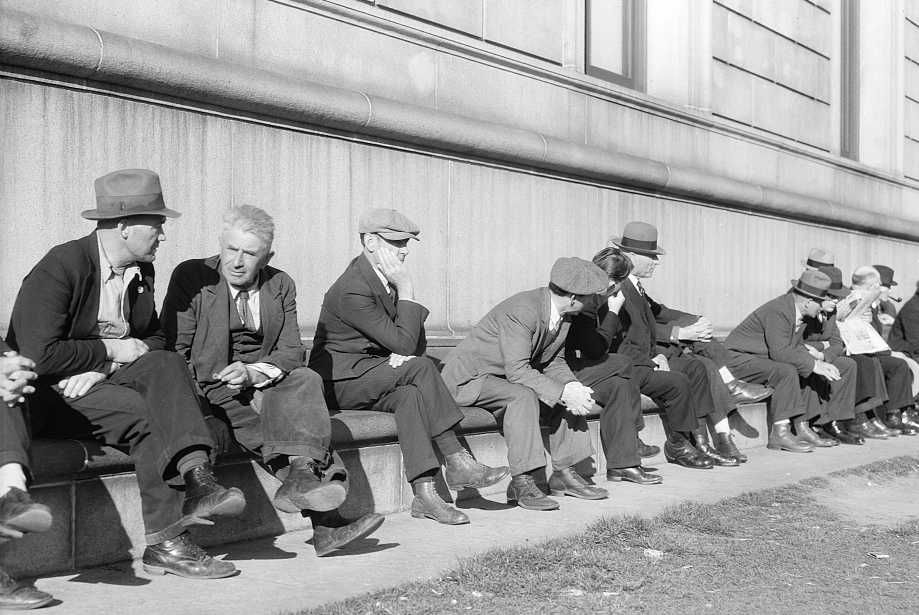
FLORIDA
Washboard Bill Cooke
“The blues is something that happens to a poor person. When you wake up in the morning and you don’t have nothing to eat, you’ve got the blues.”
Twice jailed for short terms of hard labor in Georgia after railroad detectives found him riding. He finally stopped when a soldier warned him that hobos could get shot as saboteurs after Dec 7, 1941.
A woman in East McKeesport, PA gave him half a chicken when he told her he was “so hungry I could eat a jackass backwards.”
FLORIDA
William Martin
18, 1938
A holy terror
St Louis to Kansas City. An overnight redball and one of the most uncomfortable rides in my life.
We found an empty boxcar in the yards but it was after dark and we couldn’t tell what had been in it. We soon found out. There were some scraps of wood and heavy paper on the floor and we were so cold that we thought a little fire couldn’t hurt.
The fire had just started to smolder when we realized that the previous cargo had been sulfur. We couldn’t get close enough to put it out because of the smoke and fumes that filled the car. We rode all night with out heads out of the open doors. We abandoned the still smoking car when we slowed for the Kansas City yards.
FLORIDA
William Vernon Roudebush
17-18
1935
Summer student travelers traveling across Nebraska prairies toward Grand Island
“We had completely lost track of what day it was, when about 4 o’clock in the morning, in pitch darkness, the train ground to a halt. With paralyzing cold penetrating every crack and crevice of the now motionless boxcar, we were rudely awakened by powerful flashlights being shone in our faces.
Five or six railroad detectives had rolled the boxcar door open and swarmed into our sleeping quarters. Shouting load and profane orders to get up and get out, they menaced us with their guns and with rock hard boots kicked us toward the open door.
We staggered out into the siding in confusion, sleep having vanished in a flash and fear taking its place with lightning speed. Shivering and miserable we were ordered to line up and stand still. We had no chance to run, no place to hide, and were warned not to try or we would be shot.
The sheriff, wearing a big black cowboy hat and cowboy boots seemed to me, petrified with fear, to be at least seven feet tall. He wielded a club in one ham sized fist and a big black revolver in the other.
He strode up and down the line while his assistants flashed their lights in our eyes, each in turn, as he roared, “What are you **** ******* bums doing on MY train.”
Whether he liked our answers or not we found ourselves lying on the ground literally seeing stars as his club or fist landed unmercifully on our skulls, faces, buttocks, whatever was available. After being knocked to the ground for a second time, I decided to stay there but was warned he would kick my brains out if I didn’t get up.
Red was a more experienced fighter than I having taken boxing at one of Chicago’s professional boxer’s gyms and he was more able to roll with the punches.
My nose bleeding and my arms covered with welts from trying to protect my head from the wicked blows. Several other bums were also bleeding profusely and one kid, about Red’s and my age, whom we had befriended, had been complaining the previous day of an abscessed tooth. The railroad dick seemed to sense his problem and belted him on the side of his swollen jaw. I will never forget the scream of pure agony the poor kid let out.
We learned later that this particular railroad dick was unusually tough and mean because his brother, also a railroad dick, had been killed when he was tied up by some bums and thrown from a moving boxcar.
It was still dark when we were herded out on the nearest highway and profanely ordered to start walking east and to stay away from the railroad. In fact we were threatened with swift destruction if we were ever caught around Sheridan, Wyoming again, which was the first clue we had of where we were.
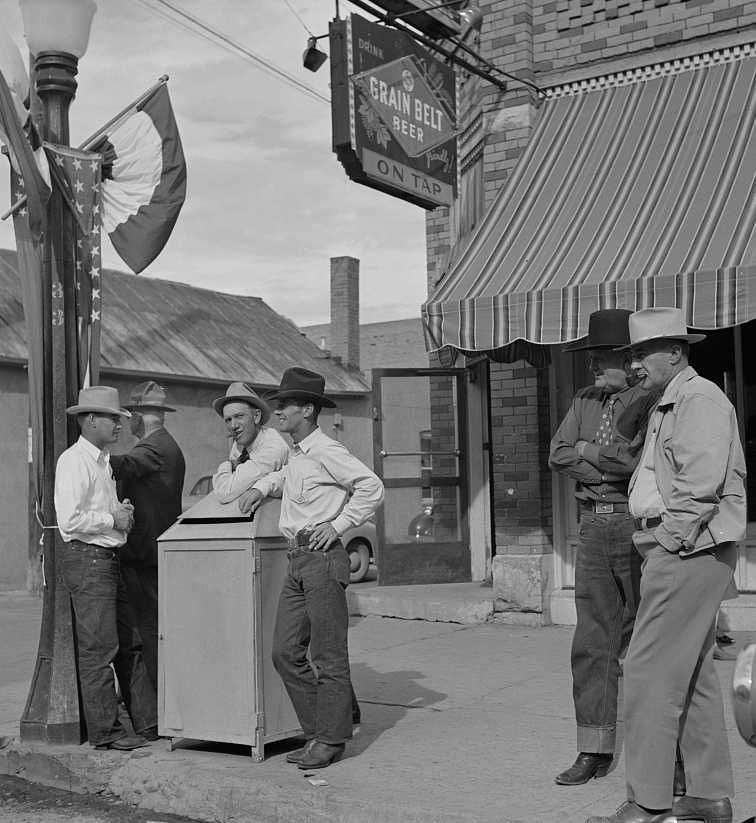
Several of us, perhaps eight or ten, still smarting from our wounds, stayed on the highway until daybreak and began to hitch hike back through or around Sheridan, hoping to get to Billings, Montana by thumbing. Providence smiled on us and the first car we thumbed stopped, and picked some of us up. He drove us 15 miles beyond Sheridan in the direction of Billings.
At Billings: At each house, answering our knocks, a woman appeared in the doorway. Some of the women were medium sized, some were small, and some filled the entire door frame. All seemed to be dressed in flimsy wrap around kiminos, wearing dangling earrings and having very rosy cheeks and lips. Their perfume was overpowering, but they all had broad, friendly smiles and invited us into their little houses.
When we told them we were from Chicago heading west and were starving, they gave us cups of coffee, bread and butter, donuts and twenty-five to fifty cents apiece, which was, as one told me, half of her pay from her last customer. Upon our meeting again at the end of the row houses and counting what amounted to almost $4 between us Red and I suddenly realized we had just panhandled the Red Light District of Billings, Montana.
Laughing uproariously, we wasted no time hotfooting it to the nearest store where we laid in a fair supply of life- saving groceries from the hard earned cash given so generously from the pay checks of the Shady Ladies of Billings.
I was soon hurtling through the darkness, all alone in a big, black cavernous, chilly boxcar. I had never noticed before how lonely and mournful a train whistle sounded. It seemed to moan like a somber ribbon, weaving in and out of the smoke and soot streaming back over the top of the long line of swaying cars.
“My mother gave me an icy reception. She kept her distance and surveyed my miserable appearance with disapproval – my faded flannel shirt with ragged cuffs and elbows, the well worn seat and knees of my jeans and my once jaunty Stetson, a hand-me-down was sweat stained and battered. She immediately consigned my scuffed up run-down boots, my pride and joy, to the trash barrel (I secretly rescued them) and then she called my father at work.
When he arrived home, the atmosphere improved considerably. He greeted me soberly at first, then clasped me roughly in a big bear hug and I knew I was home and everything would be all right again. Mom made herself busy in the kitchen, but I knew from the shadow she cast on the dining room wall that she was listening intently to our conversation. My sister was bursting with many questions, and Dad was interested in every aspect of my hobo adventure, especially my red still out of line nose.
By the time we sat down to a gourmet dinner prepared by my thawing out mother, it was evident that I was back inside our family circle. Dad was having trouble concealing his pride in my sticking it out through some perilous times and that I was, as he put it, a survivor and not a quitter.
It took Mom a few days to fully warm up and forgive me for what I had put her and my father through, but when she did, she agreed with Dad.
The most memorable question that my Dad asked me that evening at dinner was, “Did you learn anything?” And I replied without hesitation, “Yeah! I learned a lot. Never do it again!”
